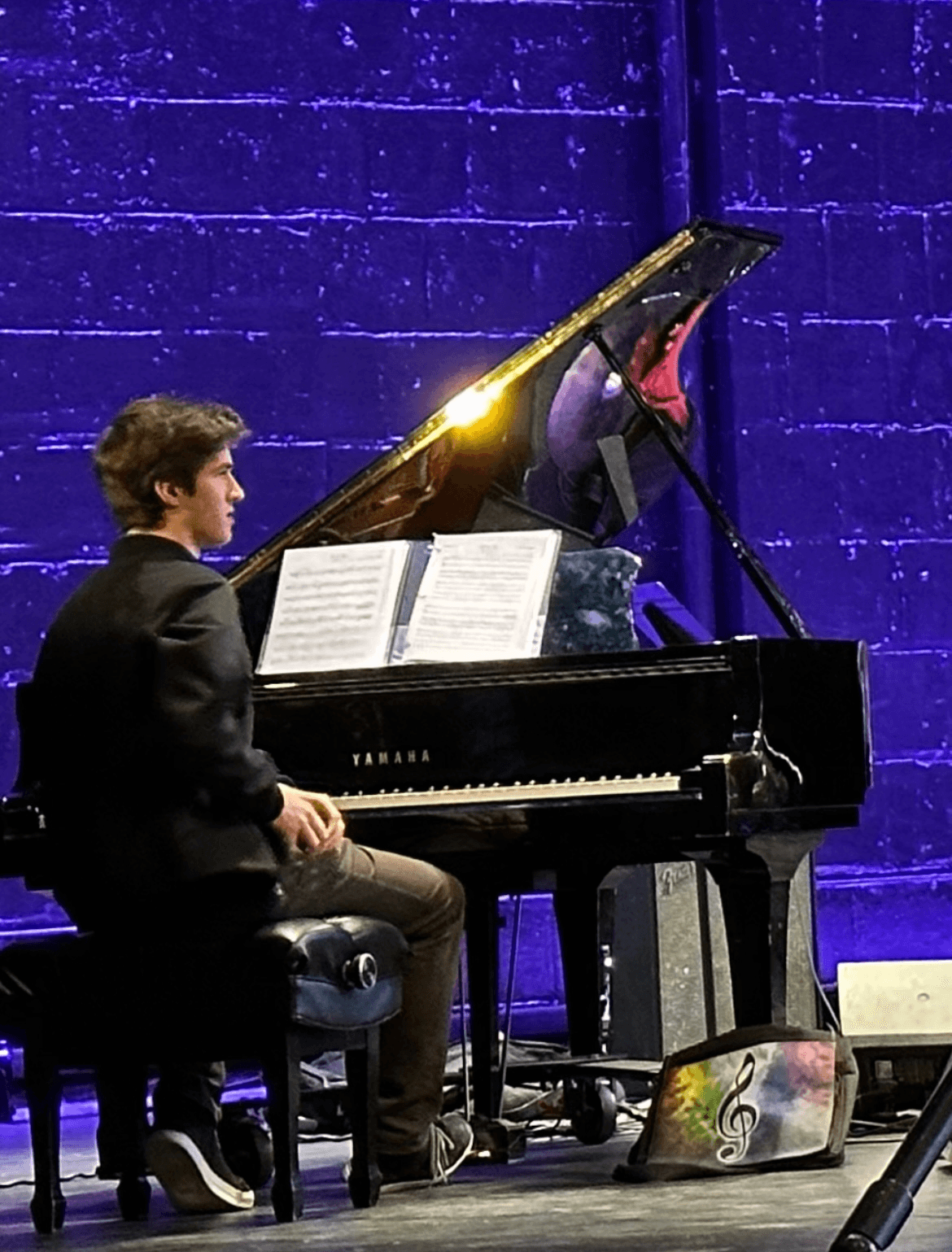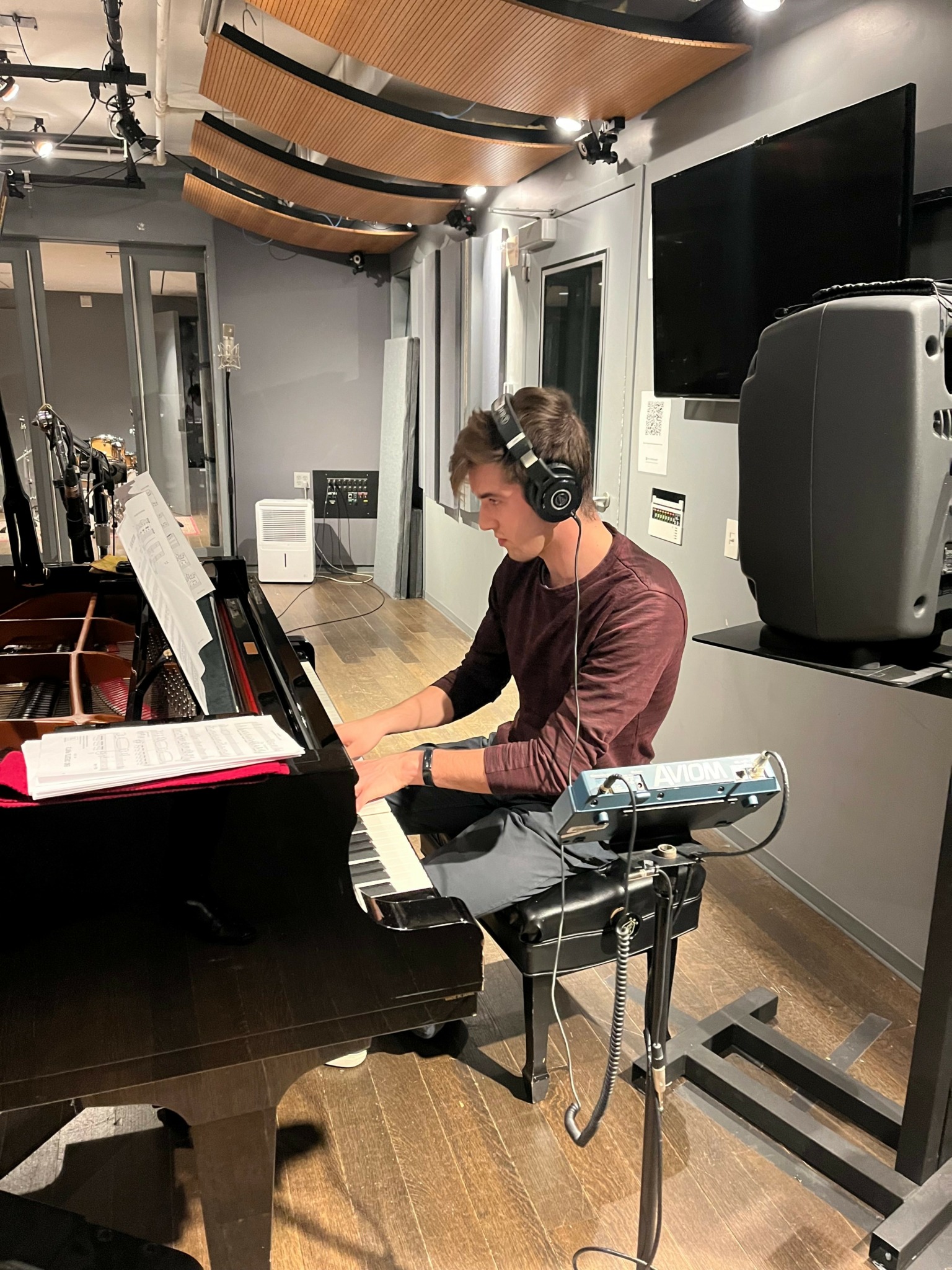We’re excited to introduce you to the always interesting and insightful Luca Millard-Kish. We hope you’ll enjoy our conversation with Luca below.
Luca, looking forward to hearing all of your stories today. Can you talk to us about a project that’s meant a lot to you?
One of my most meaningful projects was the premiere of my orchestral piece Reflections, performed by the Seattle Symphony. It was a dream opportunity to write for a professional ensemble of that caliber early in my career, and it was also a deeply personal piece rooted in a chapter of major transition and emotional growth.
The piece itself explores the process of becoming—how we grow and recontextualize past pain as part of a larger journey. When I started writing it, I was reckoning with my first real heartbreak, and more than that, I was forced to confront past versions of myself, to make meaning out of moments that felt scattered and raw. I didn’t start with melodies. Instead, I started with words and feelings, sketching the emotional arc before translating it into sound.
Working through that discomfort wasn’t just an artistic choice, it felt necessary. The premiere was more powerful than I could have imagined. The musicians interpreted it with care and intensity, and I felt like I was floating during the performance. Afterward, several audience members shared how the music resonated with them. Those exchanges made all the painful soul-searching and many dead-end drafts worthwhile.
It reminded me why I do what I do: to connect, make people feel seen, and give shape to ideas and experiences that feel too big for words.
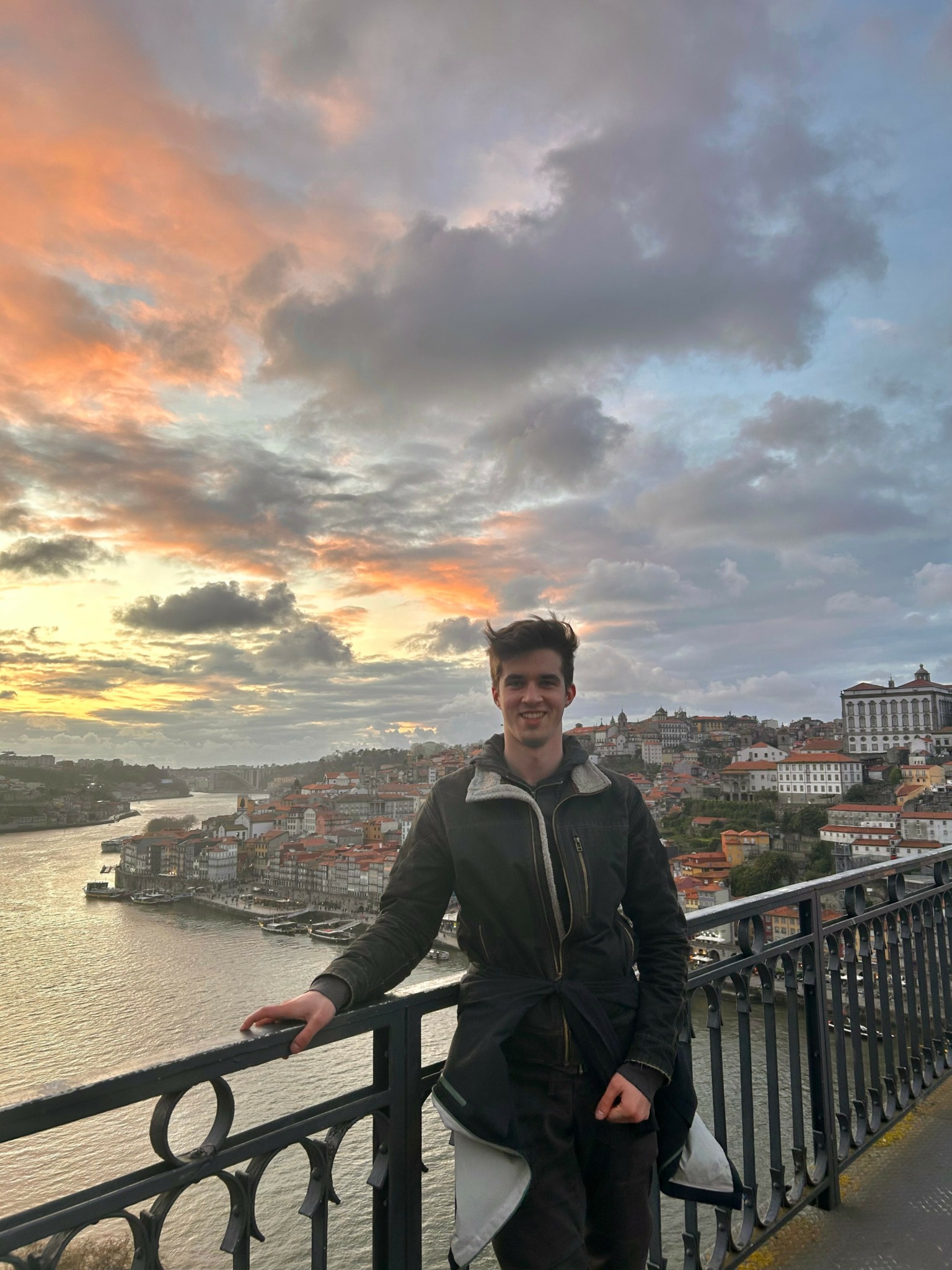
Luca, before we move on to more of these sorts of questions, can you take some time to bring our readers up to speed on you and what you do?
Music has always been part of my world. My dad played bass, and our family saw live music and theater often. When my dad’s friend left his keyboard at our house when I was six, I started exploring and got hooked. In piano lessons, I improvised endlessly, adding new endings to pieces I was supposed to be practicing (much to the amusement—and sometimes frustration—of my teachers).
A turning point came when I met my early mentor, composer Amy Rubin. She helped me realize my music could live beyond my head or notebooks out loud, in real performances. That changed everything. From there, opportunities like the Seattle Symphony’s Young Composers Workshop and the Interlochen Summer Program helped me take that path seriously.
Now, studying screen scoring at NYU has broadened my vision further. My mentors here, especially John Kaefer, helped me connect the creative side to the real-world business of music. Collaborations with student filmmakers, dancers, vocal groups, and theater productions pushed me to become more versatile not just as a composer, but a storyteller, music director, and producer.
Today, I work across a range of mediums including film, commercials, concert works, and theater. I provide clients with music that resonates. I bring my foundation in orchestration and formal composition into every project, but I also bring my love of jazz, rock, folk, pop, musical theater. I’ve scored everything from narrative features to branded campaigns, and one thing that’s constant is my investment in story and collaboration.
Colleagues and clients tell me I bring strong musical instincts, but also clear, compassionate communication. I strive to be reliable, organized, and as emotionally invested in the final product as they are.
What I’m most proud of is my ability to move between worlds without losing my voice. I’m telling stories and finding a way to say something honest.
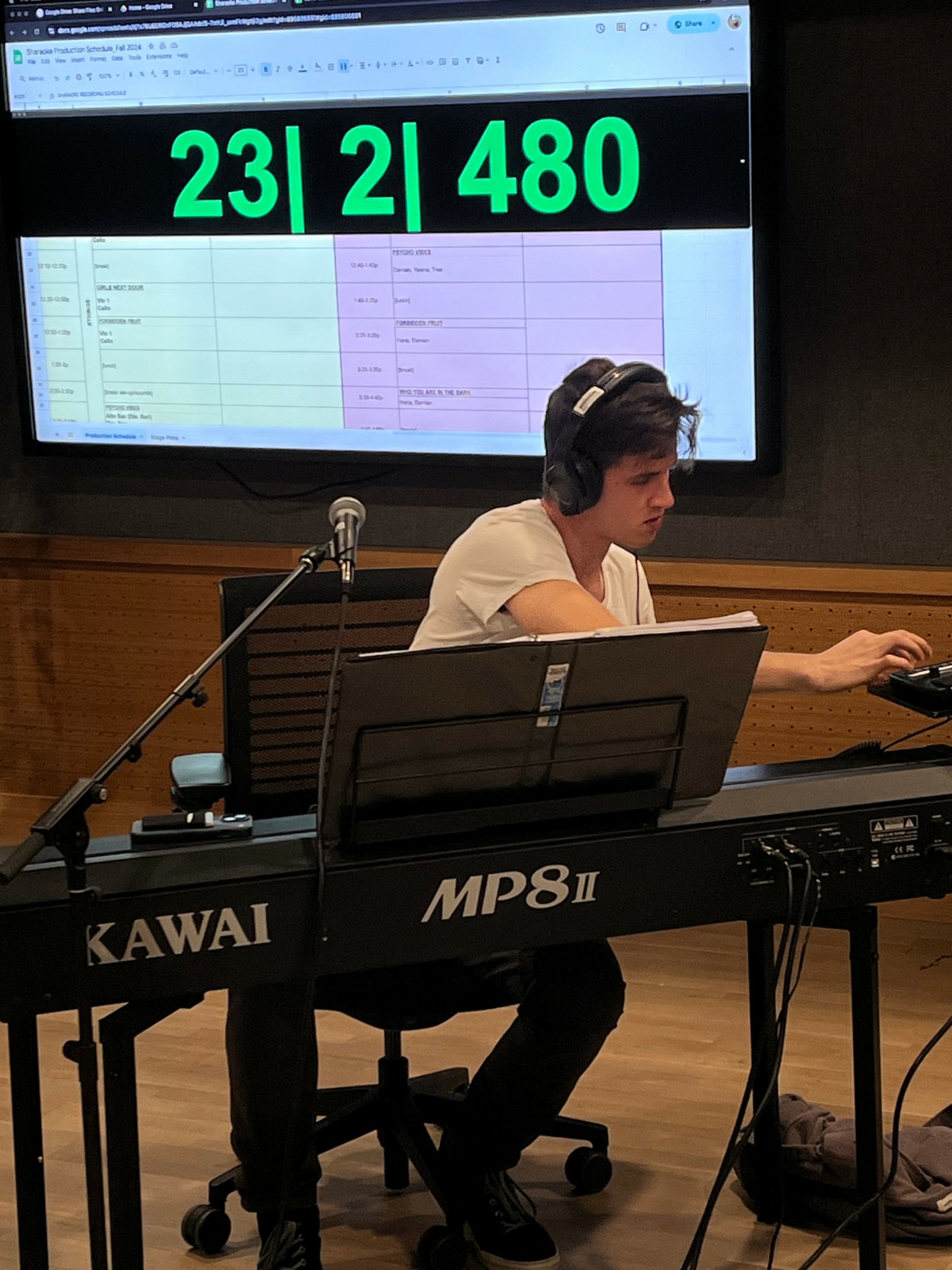
What’s the most rewarding aspect of being a creative in your experience?
The most rewarding part is twofold: the process and the impact.
Creatively, I love that phase where you’re trying everything—sketching, revising, iterating—until something just clicks. It’s humbling and frustrating and magical. I’ve learned to respect the versions that don’t work, because they lead me closer to what does. There’s a kind of sculpting, distilling, and refining involved until the result feels both fresh and inevitable.
Beyond the craft, it’s about resonance. When someone hears a piece I’ve written and says, “That made me feel seen,” or when a client tells me the music brought their vision to life—that’s everything. The emotional spark. The moment where the sound bridges something unspoken.
Even though the audience never sees the countless hours and revisions behind a piece, they can feel the work that was done and care that went into it. That’s the magic I chase.
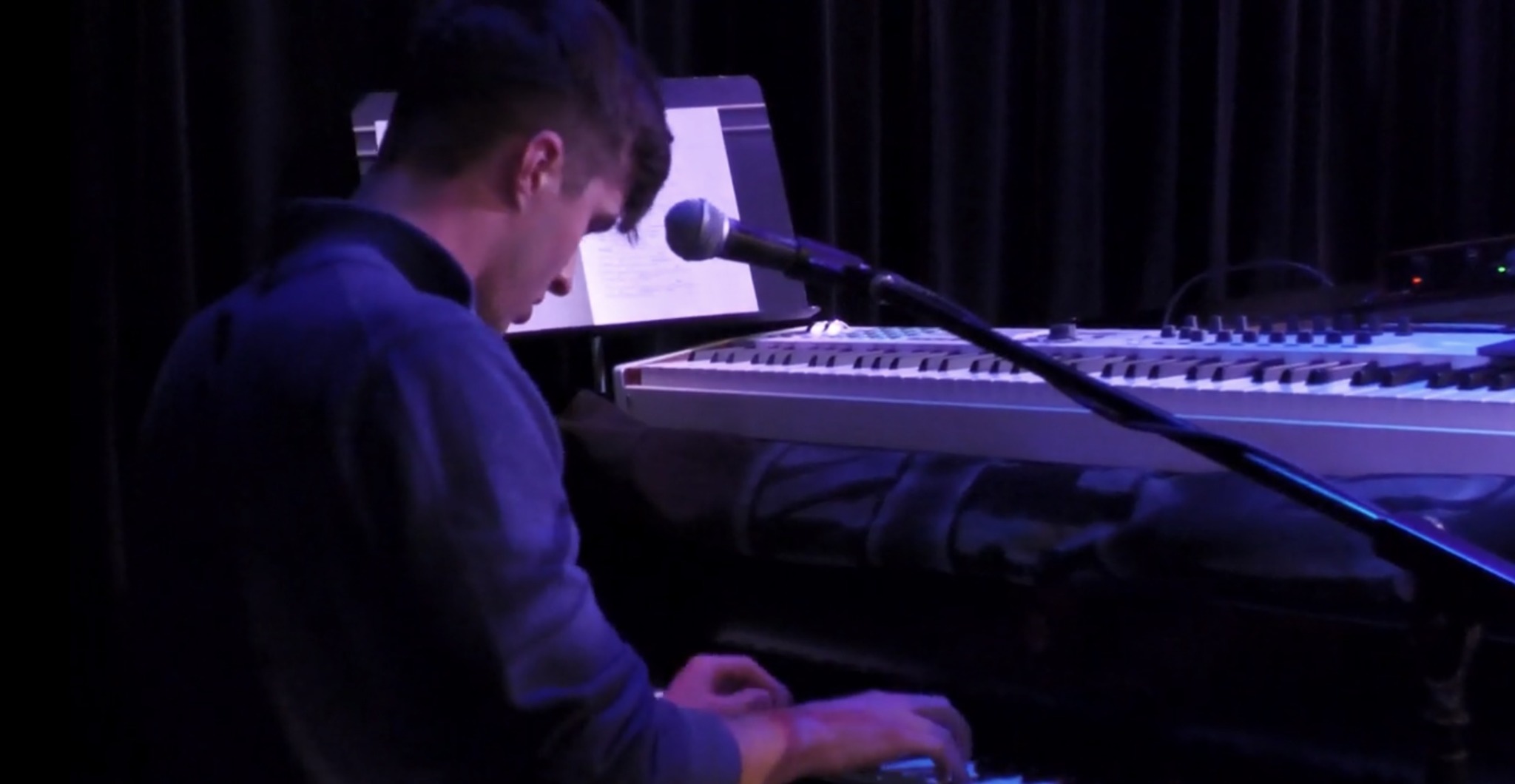
Can you share a story from your journey that illustrates your resilience?
The Brown University Health “Illuminations” campaign is a great example of a project that tested my resilience on multiple levels—creatively, logistically, and emotionally.
I was leading the music side of a major regional campaign, and I felt strongly that the music needed to be as human and resonant as the rest of the spot. That meant going beyond the easy route and recording a live orchestra (the Budapest Symphony) despite a tight timeline and a moving target of revisions.
There were over five full versions of the score, not including internal drafts. And because we were working on a commercial timeline, everything had to remain flexible until the last second. That meant crafting mockups that could sell the idea, then quickly preparing full scores and parts for live players without sacrificing quality.
A last-minute challenge hit when I learned the session wouldn’t be conducted to a click track. Certain moments had to sync precisely with the video edit, so I mapped everything using a stopwatch and gave precise tempo and timing notes to the conductor. The pressure was on, but one of the takes miraculously synced perfectly with the final cut..
It was a moment that required every part of me: composer, producer, communicator, problem-solver. And when the client saw a behind-the-scenes video of the orchestra recording and felt like they were making a mini movie, I knew the risk had paid off.
Resilience isn’t just about surviving stress, it’s about committing to care deeply, even when it’s harder. That’s something I try to bring to every project.
Contact Info:
- Instagram: @lucamkmusic
- Linkedin: https://www.linkedin.com/in/luca-millard-kish/
- Youtube: https://www.youtube.com/@lucamillard-kish1077
- Soundcloud: https://soundcloud.com/user-974603582
- Other: https://seattlesymphonyplus.org/player/25076/stream?assetType=movies&playlist_id=64
https://www.brownhealth.org/illumination
